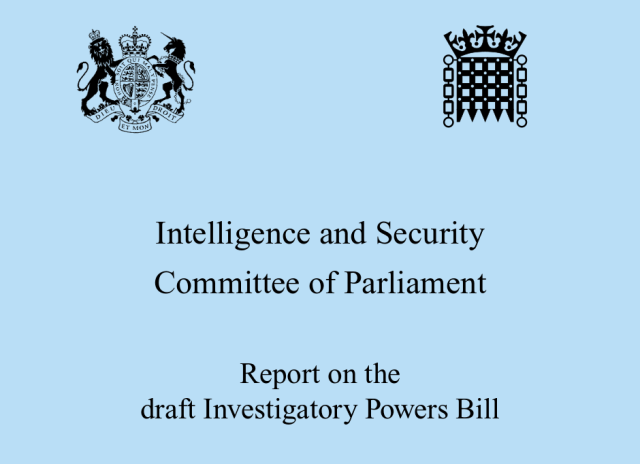
The UK parliament's Intelligence and Security Committee (ISC) says that the draft Investigatory Powers Bill "lacks clarity and undermines the importance of the safeguards associated with these [surveillance] powers." Offering unexpectedly strong criticism of the proposed Snooper's Charter, the ISC says in its report on the proposed legislation that "privacy protections should form the backbone of the draft legislation, around which the exceptional powers are then built."
The ISC is particularly concerned by plans to allow intelligence agencies to obtain "bulk equipment interference" warrants, which would allow them to hack into the systems of large groups of people, locations, or organisations. The ISC points out this is far too broad a power, and recommends that "Bulk Equipment Interference warrants are removed from the new legislation."
Another part of the Bill that comes in for harsh criticism is the section covering the collection of bulk personal datasets. The problem is that this "allows the Agencies to obtain any number of datasets falling within a category (e.g. travel data) without specifically informing Ministers of each one." In other words, a single warrant allows collection of personal data on a vast scale, with practically no oversight. Again, the ISC's solution is quite drastic: "We therefore recommend that Class Bulk Personal Dataset warrants are removed from the new legislation."
The IPC is even more scathing about the proposed powers to gather metadata—called "Communications Data" by the draft Investigatory Powers Bill: "The approach towards the examination of Communications Data in the draft Bill is inconsistent and largely incomprehensible."
The Intelligence and Security Committee is clearly unhappy with allowing the UK's spies to police themselves: "To leave the safeguards up to the Agencies as a matter of good practice is simply unacceptable: this new legislation is an opportunity to provide clarity and assurance and it fails to do so in this regard." The ISC says that this must be rectified.
The report adds its voice to the growing chorus deeply concerned about the open-ended power the Snooper's Charter would give the Home Secretary to force companies to backdoor or ban crypto in their services and products. On this point, the Committee says: "The Home Office must ensure that the legislation provides clarity as to the nature and scale of these obligations."
The depth and breadth of the ISC's criticisms is astonishing given its extremely meek "Privacy and Security: A modern and transparent legal framework" report from March last year, which basically gave its blessing to everything that the UK's intelligence agencies were doing. By contrast, today's report finds the Investigatory Powers Bill flawed both in overall design and in detail.
If the ISC has this many problems with the new Snooper's Charter, it suggests that its passage through the full UK parliament will be even rockier than expected.
Listing image by Intelligence and Security Committee
reader comments
11